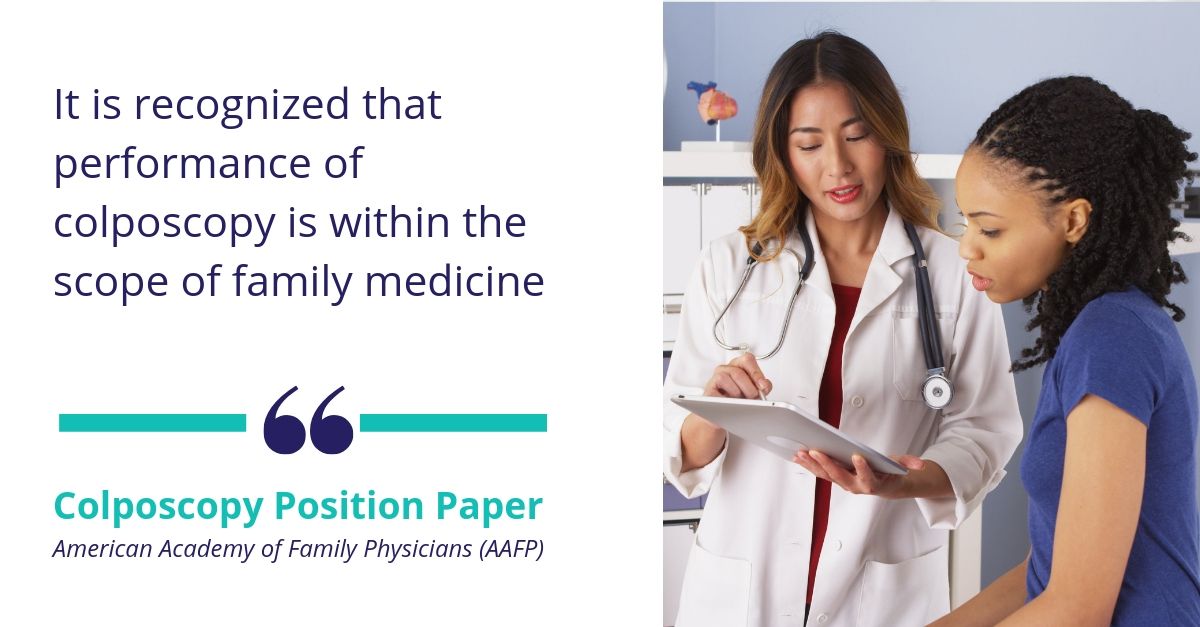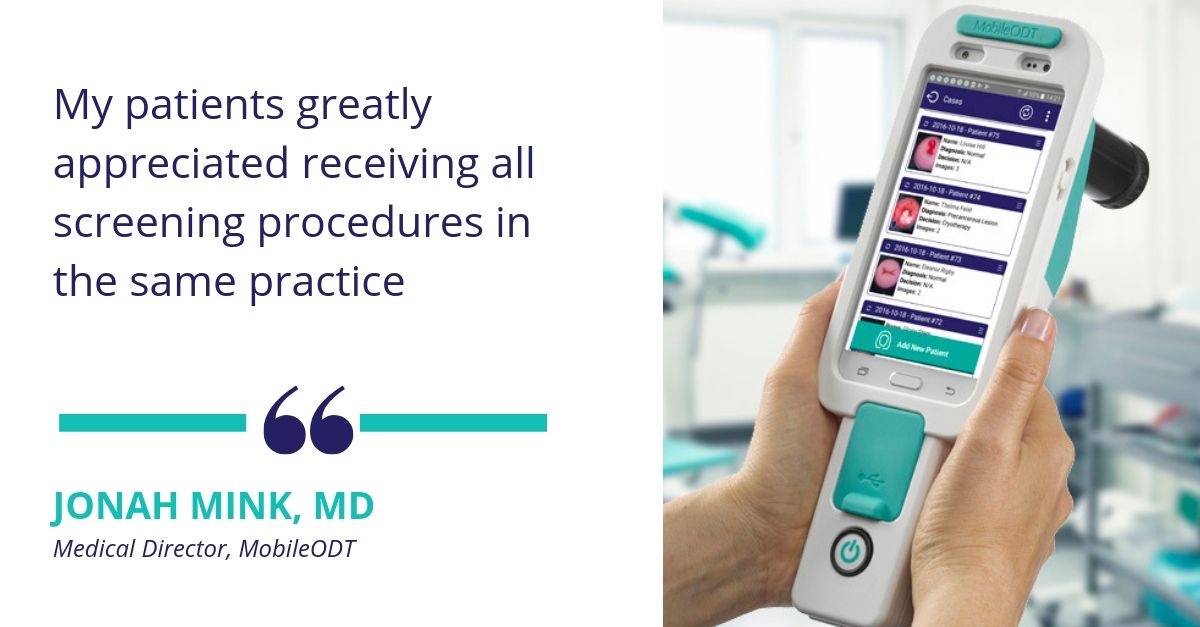Family doctors and primary care providers are the front lines in the effort to provide preventative medicine. With this vantage point, they are well placed to offer a range of screening services, benefiting their patients and expanding their practices. An increasing number of family physicians are choosing to expand their services by performing colposcopy.

Family physicians performing colposcopy
Although many residency programs do include colposcopy as part of their standard training, some physicians may be wary about adding the screening procedure to their regular practice. However, there are many gains to be made from offering the procedure as a primary care provider.
The American Academy of Family Physicians (AAFP) reports that 15.6% of its members currently perform colposcopy. The AAFP position paper on colposcopy recognized colposcopy as being ‘within the scope of family medicine.’
The paper emphasizes that patient-centered clinical practice focuses on a patient’s healthcare requirements and not the specialty of the provider. Recommendations for management ‘should emphasize appropriate specific competencies, rather than a clinician’s specialty designation.’ As we will explain, there are often times when a family physician is a more appropriate clinician to perform colposcopy than a specialist OBGYN.

Primary care physicians have a unique relationship with patients
Primary care physicians have a unique relationship with their patients. Usually the first point of contact for patients experiencing a health issue, PCPs are typically the physicians that a patient has the most interaction with throughout the course of the year. This enables them to develop a deeper relationship with their patients and create a significant level of trust. It also allows the PCP to have a holistic understanding of that patient’s healthcare needs.
This relationship can help a PCP to impress upon their patients the need for preventative screening and the importance of adhering to screening schedules.
Reduce loss to follow up
In the case of colposcopy, which can be daunting for some patients, having the procedure performed by a familiar physician can be very reassuring. Another significant factor for patient compliance is the distance traveled to an appointment.
Studies have shown that loss to follow up in cervical cancer screening significantly increases the greater the distance the patient is required to travel to receive the next stage of treatment. By offering colposcopy in house, PCPs can make the service as accessible as possible to their patients.

PCPs can fill the OBGYN gap
There is a severe shortage of OBGYN providers in many areas of the world. In the US, half of all counties lack OBGYN provision leaving 10 million women to have no OBGYN coverage in their area at all. Having to travel long distances or wait months for an appointment can cause women, regardless of their financial ability to receive comprehensive health care, to skip essential screenings. This leads many women to go unscreened for cervical cancer and can result in many unnecessary deaths.
By offering an increased array of women’s health services, primary care doctors can help address the shortage of gynecologic provision. If women have increased access to the full range of cervical cancer screening in their primary healthcare center, then only cases that require treatment or further investigation need be referred to specialists.
Recent developments in telehealth are also assisting PCPs in being a conduit to bringing specialist gynecological services within the reach of their patients. Teleconsultation for general gynecology is being used in a number of areas to enable primary care clinicians at the point of care to confer with a specialist in real-time. The digital connection allows the remote expert to see the same images as the point of care clinician, and provide immediate input and guidance.

Patient retention
Providing advanced screening services in-house can help increase patient retention. “The ability to offer the full spectrum of services in one location with a doctor that the patients know and trusts makes my work more fulfilling and makes the patient experience more satisfying which leads to better health.” explains Dr. Jonah Mink, MobileODT Medical Director.
“My patients greatly appreciated receiving all screening procedures in the same practice. For me the benefit was twofold; I could maintain a strong relationship with my patients, and offer them a higher level of care, which could improve outcomes overall.”
Expand services
There have been calls for primary care physicians to expand the range of their practice. Family physicians were found to provide 28% of preventative women’s health visits in non-metropolitan areas in a 2011 study. The authors called for residency programs to provide and emphasize comprehensive residency training in women’s healthcare for family medicine residents in an aim to increase the provision of such services.
In addition to the benefits that increased access to care has for the patients and the community, it can represent new revenue for health centers as well.

Next-generation colposcopes
Once colposcopes were bulky and stationary pieces of medical equipment, requiring a dedicated treatment room for the procedure. Today advancements in colposcopy technology have brought new portable user-friendly colposcopes to the market.
The EVA System mobile colposcope combines custom software with a user-friendly interface and 16x magnification capabilities. The lightweight device can be easily carried between treatment rooms or clinics giving maximum flexibility for service provision. Using a familiar touch screen, the EVA System is easily adopted by clinicians typically performing unaided exams within 2-3 hours of training.
Walking the clinician through the ASCCP workflow with built-in documentation, the EVA System allows clinicians to finish a colposcopy exam with a complete procedure note recorded ready to be uploaded to the EMR.
Dr. Mink shares, “The EVA System is a complete colposcopy solution, which is what you need as a family physician taking up colposcopy. A minimal capital investment allows you to work at the top of your license and adopt a new practice.”
The need for colposcopy is growing
With an international move towards HPV testing as primary cervical cancer screening, the need for colposcopy is set to increase steadily. Family physicians are well-positioned to meet this need by expanding their services to include colposcopy for the benefit of patients.







